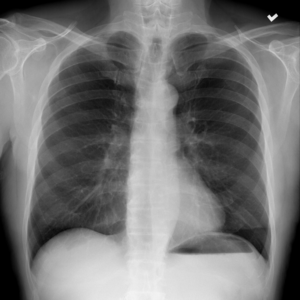Sebastian Gündel M. Eng.
Researcher in the Learning Approaches for Medical Big Data Analysis (LAMBDA) group at the Pattern Recognition Lab of the Friedrich-Alexander-Universität Erlangen-Nürnberg
Chest X-ray is the most common medical imaging exam used to assess multiple pathologies. Automated algorithms and tools have the potential to support the reading workflow, improve efficiency, and reduce reading errors.
With a collection of 300.000 X-ray images, deep learning networks can be trained to classify abnormalities effectively. The current algorithm can classify more than 15 different abnormalities. To improve the performance some prior knowledge can be implemented. Besides X-ray images other information is available: Demographic Knowledge: With the help of other features like gender, age or smoking history, the network can increase the classification performance. Lung Segmentation: Another network determines the area of the 2 lung lobes. The rest of the image can be sorted out to remove the non-important features before the classification network. Spatial Knowledge: The location information of certain abnormalities is present e.g. nodule in upper left lung lobe. This data collection is one of the biggest in the community. Therefore, experiments can be triggered to see the classification performance depending on the amount of training images. Those insights may also apply for other disease related projects. Another task is to detect the abnormalities. Due to the unavailability of exact position, semi- and unsupervised learning algorithms are created. So-called attention maps can be predicted to heat up the region of interest. |  |
|---|

 +49 9131 85 25246
+49 9131 85 25246
 + 49 9131 85 27270
+ 49 9131 85 27270

